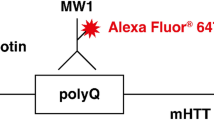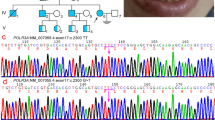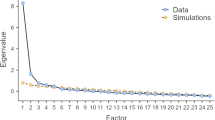Abstract
The paper reports on a 5-year longitudinal study on psychological distress after predictive testing for Huntington's disease (HD) and on correlates of post-test distress. Psychometric tests and questionnaires were used. The tested persons were invited to participate in the follow-up study; the uptake rate was 75% (24 carriers, 33 non-carriers). Three time points were included: baseline, 1 year and 5 years post-test. Five years after the test, mean distress scores of both carriers and non-carriers were within the normal range. Carriers did not differ from non-carriers with regard to mean general distress. Compared to non-carriers, however, carriers had significantly less positive feelings (P<0.001) and were more consciously avoiding HD-related situations and thoughts (P<0.01). These findings reflect the carriers' conscious and unconscious attempt to escape from pessimism and to minimise negative consequences of the test result. Psychological distress 5 years post-test was significantly associated with ego-strength (P<0.05 to P<0.001). Except for intrusion and avoidance, distress was also associated with test motivation (P<0.05 to P<0.01). Compared with baseline level, mean depression, general and specific anxiety had significantly decreased 1 year and 5 years post-test (P<0.05 to 0.01). This evolution was independent of the test result. However, based on test motivation, a subgroup of tested persons having long lasting psychological distress could be identified, also irrespective of test result. Persons who asked the test to get rid of the uncertainty, without being able to specify implications for substantial life areas, had more psychological distress before and after the test than those who wanted the test for specific reasons (P<0.001 to P<0.0001). Moreover, the pattern of post-test anxiety differed over time, depending on the test motivation (P<0.05). The findings suggest that pre- and post-test counselling should pay special attention to persons with lower ego-strength and with an unspecified test motivation, because they are at higher risk for long-term psychological distress, independently of the test result.
Similar content being viewed by others
Log in or create a free account to read this content
Gain free access to this article, as well as selected content from this journal and more on nature.com
or
References
Evers-Kiebooms G & Decruyenaere M : Predictive testing for Huntington's disease: a challenge for persons at risk and for professionals. Patient Educ Counsel 1998; 35: 15–26.
Broadstock M, Michie S & Marteau T : Psychological consequences of predictive genetic testing: a systematic review. Eur J Hum Gen 2000; 8: 731–738.
Duisterhof M, Trijsburg RW, Niermeijer MF, Roos RAC & Tibben A : Psychological studies in Huntington's disease: making up the balance. J Med Genet 2001; 38: 852–861.
Almqvist EW, Bloch M, Brinkman R, Craufurd D & Hayden M on behalf of an international HD collaborative group: A worldwide assessment of the frequency of suicide, suicide attempts, or psychiatric hospitalization after predictive testing for HD. Am J Hum Genet 1999; 64: 1293–1304.
Tibben A, Timman R, Bannink EC & Duivenvoorden HJ : Three year follow-up after presymptomatic testing for HD in tested individuals and partners. Health Psych 1997; 16: 20–35.
Codori AM & Brandt J : Psychological costs and benefits of predictive testing for Huntington's disease. Am J Med Gen 1994; 54: 174–184.
Lazarus RS & Folkman S Stress, appraisal and coping. New York: Springer 1984.
Decruyenaere M, Evers-Kiebooms G & Boogaerts A et al: Prediction of psychological functioning one year after the predictive test for Huntington's disease and impact of the test result on reproductive decision making. J Med Gen 1996; 33: 737–743.
Wexler N : The Tiresias complex: Huntington's disease as a paradigm of testing for late-onset disorders. The FASEB Journal 1992; 6: 2820–2825.
Tibben A, Duivenvoorden HJ & Vegter-Van der Vlis M et al: Presymptomatic DNA testing for Huntington disease: identifying the need for psychological intervention. Am J Med Genet 1993; 48: 137–144.
Decruyenaere M, Evers-Kiebooms G & Boogaerts A et al: Predictive testing for Huntington's disease: Risk perception, reasons for testing and psychological profile of test applicants. Genet Counsel 1995; 6: 1–13.
Spielberger CD, Gorsuch RL & Lushene RE Manual for the State Trait Anxiety Inventory, Palo Alto: Consulting Psychologists Tests 1970
Van der Ploeg HM, Defares PB & Spielberger CD Handleiding bij de Zelfbeoordelingsvragenlijst: een Nederlandstalige bewerking van de Spielberger STAI, New York: Swets & Zeitlinger 1980
Beck AT, Steer RA & Garbin M : Psychometric properties of the Beck Depression Inventory: twenty-five years of evaluation. Clin Psych Rev 1988; 8: 77–100.
Bouman TK, Luteijn F, Albertnagel FA & Van der ploeg FA : Enige ervaringen met de Beck Depression Inventory. Gedrag Tijdsch Psych 1985; 13: 13–24.
Derogatis L SCL-90: Administration, scoring and procedures for the R(evised) version, Baltimore: John Hopkins University School of Medicine 1977
Arrindell WA & Ettema JHM SCL-90: Handleiding bij een multidimensionele psychopathologie-indicator, Lisse: Swets Test Services 1986
Horowitz M, Wilner N & Alvarez W : Impact of event scale: a measure of subjective stress. Psychosom Med 1979; 41: 209–218.
Wooldridge EQ & Murray RF : The health orientation scale: a measure of feelings about sickle cell trait. Social Biology 1988; 35: 123–136.
Barron F : An ego-strength scale which predicts response to psychotherapy. J Cons Psych 1953; 17: 327–333.
Graham JR The MMPI. A practical guide, New York: Oxford University Press 1987
Statistical Analysis Software, SAS Institute Inc. 1999.
Taylor SE & Brown JD : Illusion and well-being: a social psychological perspective on mental health. Psychol Bull 1988; 103: 193–210.
Croyle RT, Sun Y & Louie DH : Psychological minimization of cholesterol test results: moderators of appraisal in college students and community residents. Health Psych 1993; 6: 503–507.
Leventhal H & Cameron L : Behavioural theories and the problem of compliance. Patient Educ Counsel 1987; 10: 117–138.
Tercyak KP, Lerman C & Peshkin BN et al: Effects of coping style and BRCA1 and BRCA2 test results on anxiety among women participating in genetic counseling and testing for breast and ovarian cancer risk. Health Psych 2001; 20: 217–222.
Miller S, Brody DS & Summerton J : Styles of coping with threat: implications for health. J Person Social Psych 1988; 54: 142–148.
Demyttenaere K, Evers-Kiebooms G & Decruyenaere M : Pitfalls in counseling for predictive testing in Huntington disease. March of Dimes, Birth Defects 1992; 28: 105–112.
Richards M : Families, kinships and genetics. in Marteau T, Richards M (eds)The troubled helix, social and psychological implications of the new human genetics, Cambridge University Press, 1996, pp 249–273.
Evers-Kiebooms G, Nys K & Harper P et al: Predictive DNA-testing for Huntington's disease and reproductive decision making: a European collaborative study. Eur J Hum Gen 2002; 10: 167–176.
Huys J, Evers-Kiebooms G & d'Ydewalle G : Decision making in the context of genetic risk: the use of scenarios. March of Dimes, Birth Defects 1992; 28: 17–20.
Boszormenyi-Nagy I & Ulrich D : Contextual Family Therapy. in Gurman A, Kniskern P (eds) Handbook of family therapy, New York, Brunner Mazel (1980). pp 159–186.
Heim E : Coping-based intervention strategies. Patient Educ Counsel 1995; 26: 145–151.
Acknowledgements
We express special gratitude to the participants in this study. We also want to thank Professor A De Paepe (Ghent) and Professor J Dumon (Antwerp) for their permission to include testees from their centre.
Author information
Authors and Affiliations
Corresponding author
Rights and permissions
About this article
Cite this article
Decruyenaere, M., Evers-Kiebooms, G., Cloostermans, T. et al. Psychological distress in the 5-year period after predictive testing for Huntington's disease. Eur J Hum Genet 11, 30–38 (2003). https://doi.org/10.1038/sj.ejhg.5200913
Received:
Revised:
Accepted:
Published:
Issue date:
DOI: https://doi.org/10.1038/sj.ejhg.5200913
Keywords
This article is cited by
-
A pilot evaluation of an 8-week mindfulness-based stress reduction program for people with pre-symptomatic Huntington’s disease
Journal of Community Genetics (2023)
-
Improving follow up after predictive testing in Huntington’s disease: evaluating a genetic counselling narrative group session
Journal of Community Genetics (2020)
-
Factors influencing use of telegenetic counseling: perceptions of health care professionals in Sweden
Journal of Community Genetics (2019)
-
What to Do with a Second Chance in Life? Long‐Term Experiences of Non‐carriers of Huntington's Disease
Journal of Genetic Counseling (2018)
-
Complementarity between medical geneticists and genetic counsellors: its added value in genetic services in Europe
European Journal of Human Genetics (2017)



